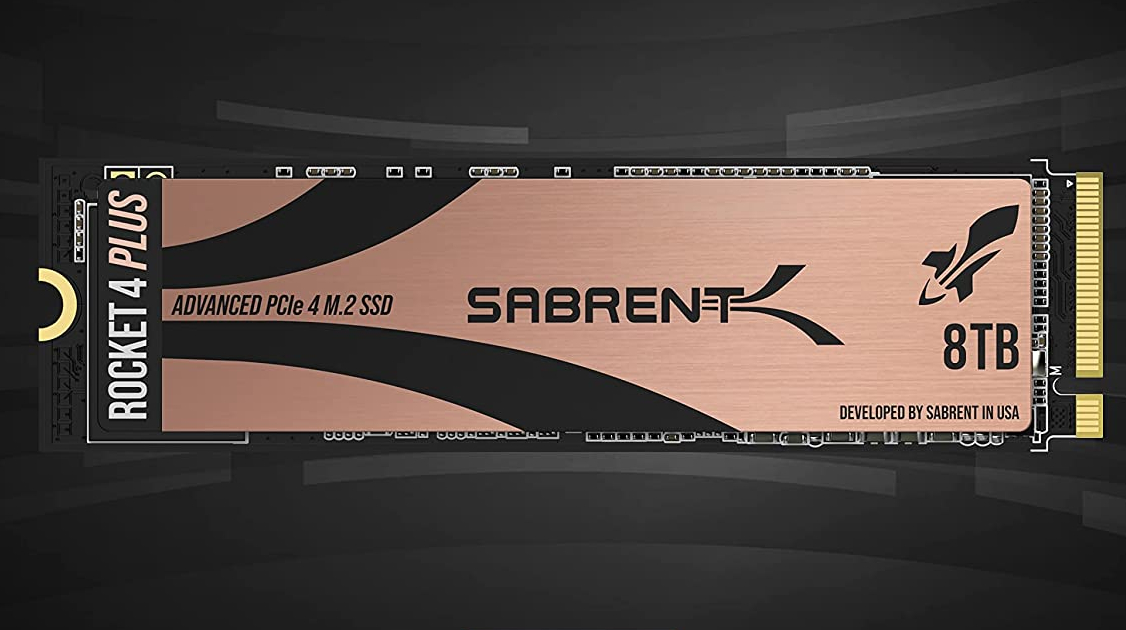The biggest, fastest M.2 SSD just launched - and it's more affordable than you think
8TB, Gen4, Phison controller and 112-layer BICS5 NAND - what’s not to like?

At just under $1,500 (about AU$2000, £1,150), Sabrent’s newest SSD (solid state drive) is neither the biggest, nor the fastest nor the cheapest per TB capacity but it hits a nice, sweet spot.
The Rocket 4 Plus 8TB is the fastest, very high capacity model available on the market right now, as most if not all of its rivals are either smaller and as fast or just as big and smaller in capacity.
The drive was originally announced late in 2021, but prospective purchasers had to wait four months to get their hands on the new model.
Full custom SSD
In a statement to TechRadar Pro, Sabrent told us that the device is late because the new NAND (8Tbit, 112-layer, TLC, BICS5) is larger than others and took a lot of engineering to get everything to fit and tune the firmware.
Sabrent claims to be the only company to have asked Phison, the manufacturer behind the PS5018-E18 flash controller, to do this so that the Rocket 4 Plus earns its title of “full custom SSD”.
The drive also comes with 1GB of SK Hynix DDR4 memory, a five-year warranty, the signature copper-colored heatsink and a special edition of Acronis True Image disc cloning software.
The Aircraft Carrier?
You will need a motherboard that supports PCIe Gen4 and, if you want to plug this into a laptop, one that supports M.2 2280.
Are you a pro? Subscribe to our newsletter
Sign up to the TechRadar Pro newsletter to get all the top news, opinion, features and guidance your business needs to succeed!
Once you get that sorted out, you’d be using one of the fastest NVMe SSD with claimed performance speeds of up to 7GBps (read) and 6GBps (write); the latter is significantly down from the 6.85GBps quoted for the 4TB model; on the other hand, random IOPS are far higher and probably constitute a better benchmark.
Other headline metrics include an endurance of 6PB written. That brings us to the next (important) question; what will come after the Destroyer and the Battleship, special x16 PCIe Gen4 cards that merge eight SSDs into a virtual high capacity storage vessel.
The HighPoint Technologies SSD7540 was the base card used for the two aforementioned products and it yielded speeds of up to 23GBps. We bet that this next Sabrent powerhouse will be called the Aircraft carrier.

Désiré has been musing and writing about technology during a career spanning four decades. He dabbled in website builders and web hosting when DHTML and frames were in vogue and started narrating about the impact of technology on society just before the start of the Y2K hysteria at the turn of the last millennium.